BASF India: Strengthening Farmer Resilience Through Indigenous Seed Banks in Dharashiv
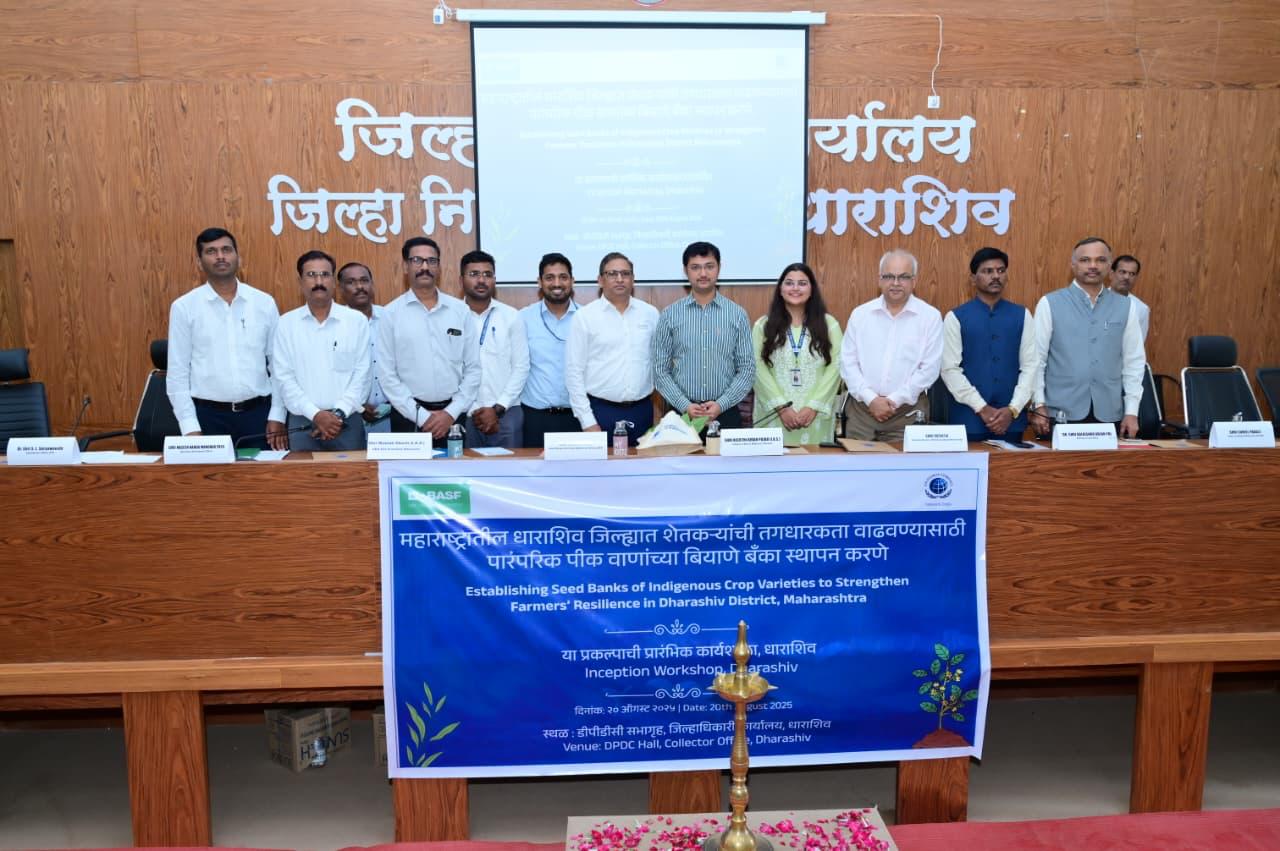
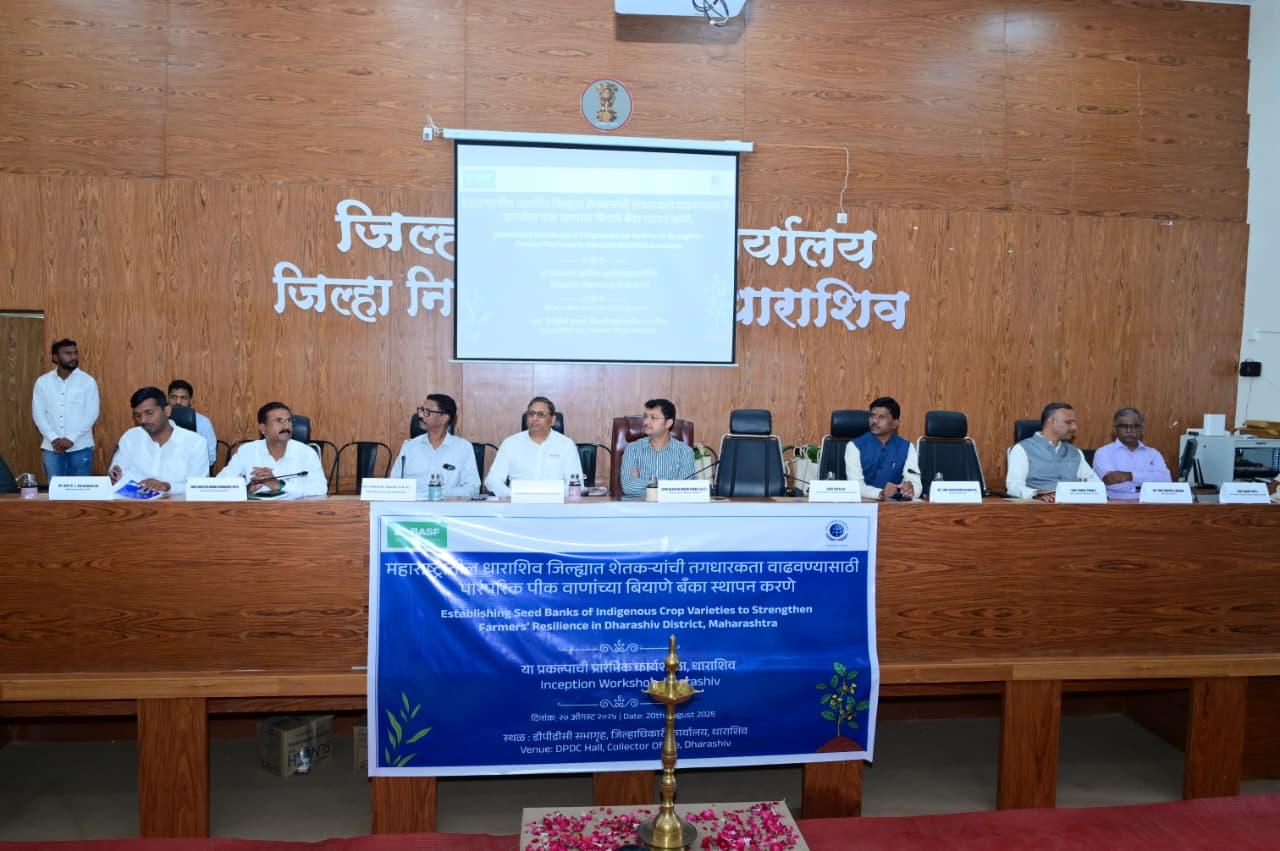
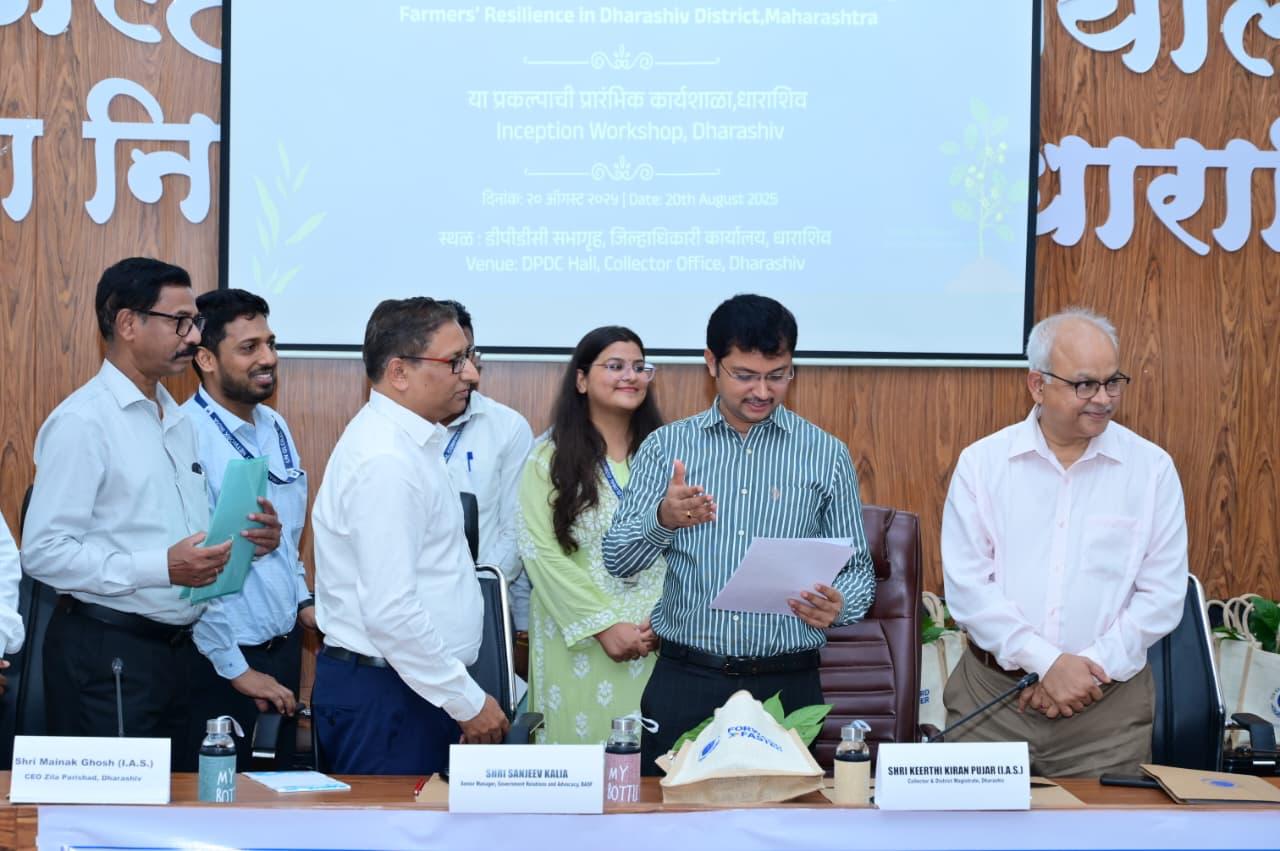
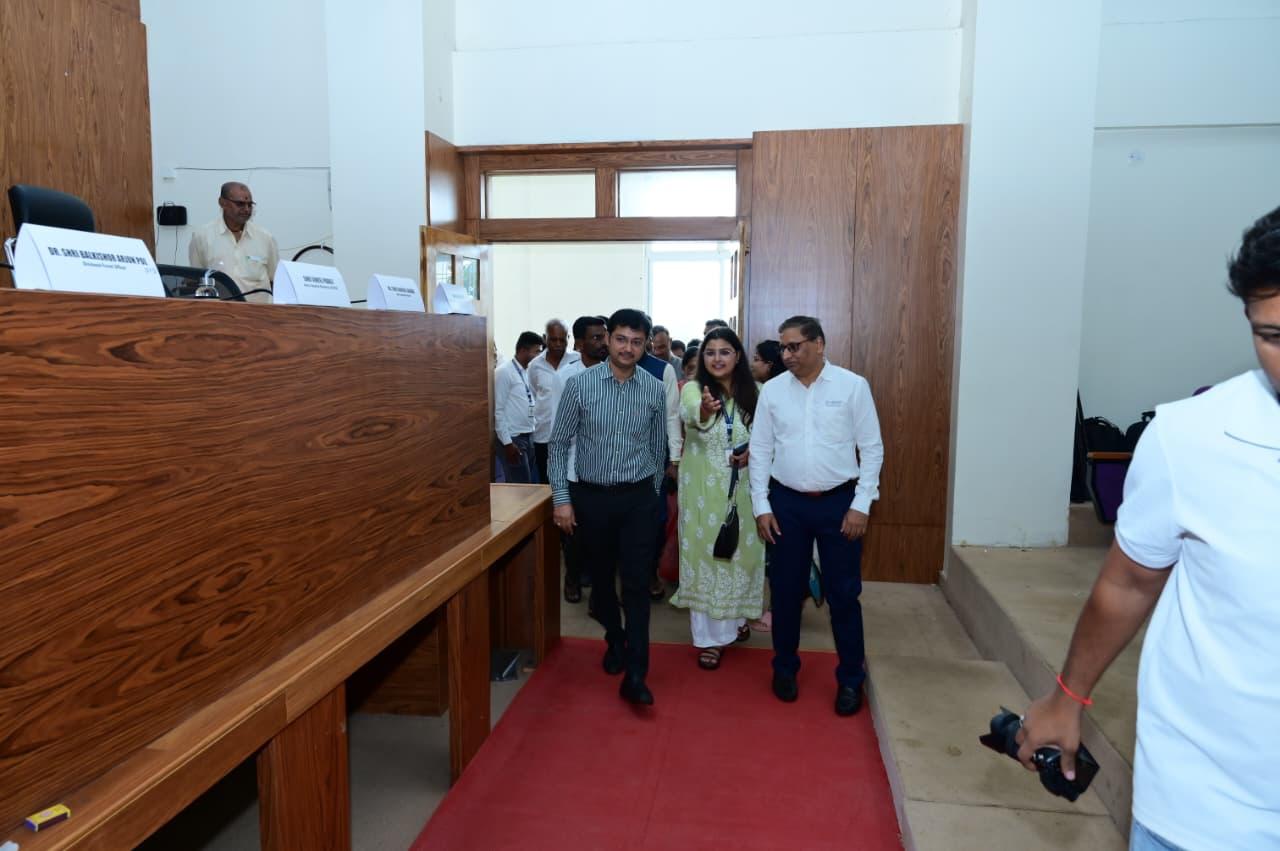
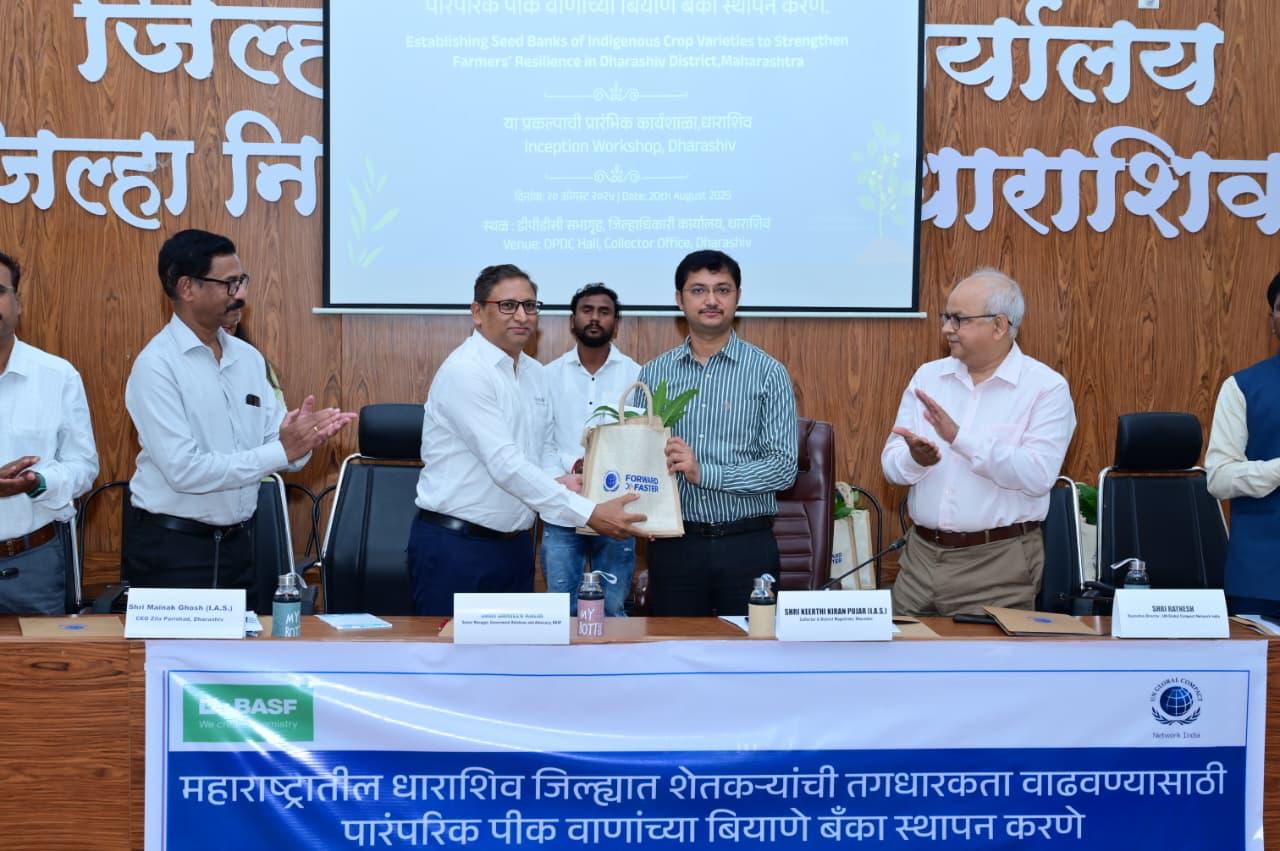
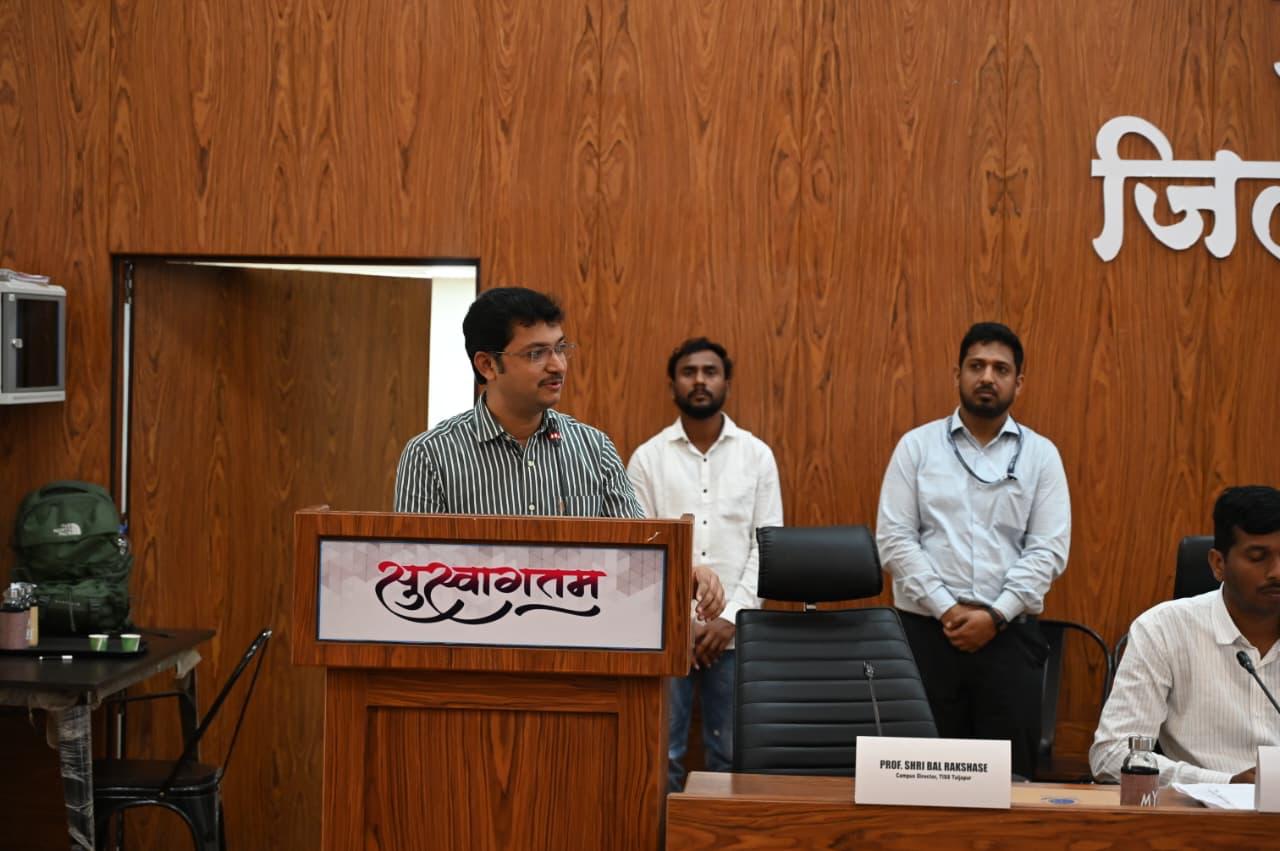
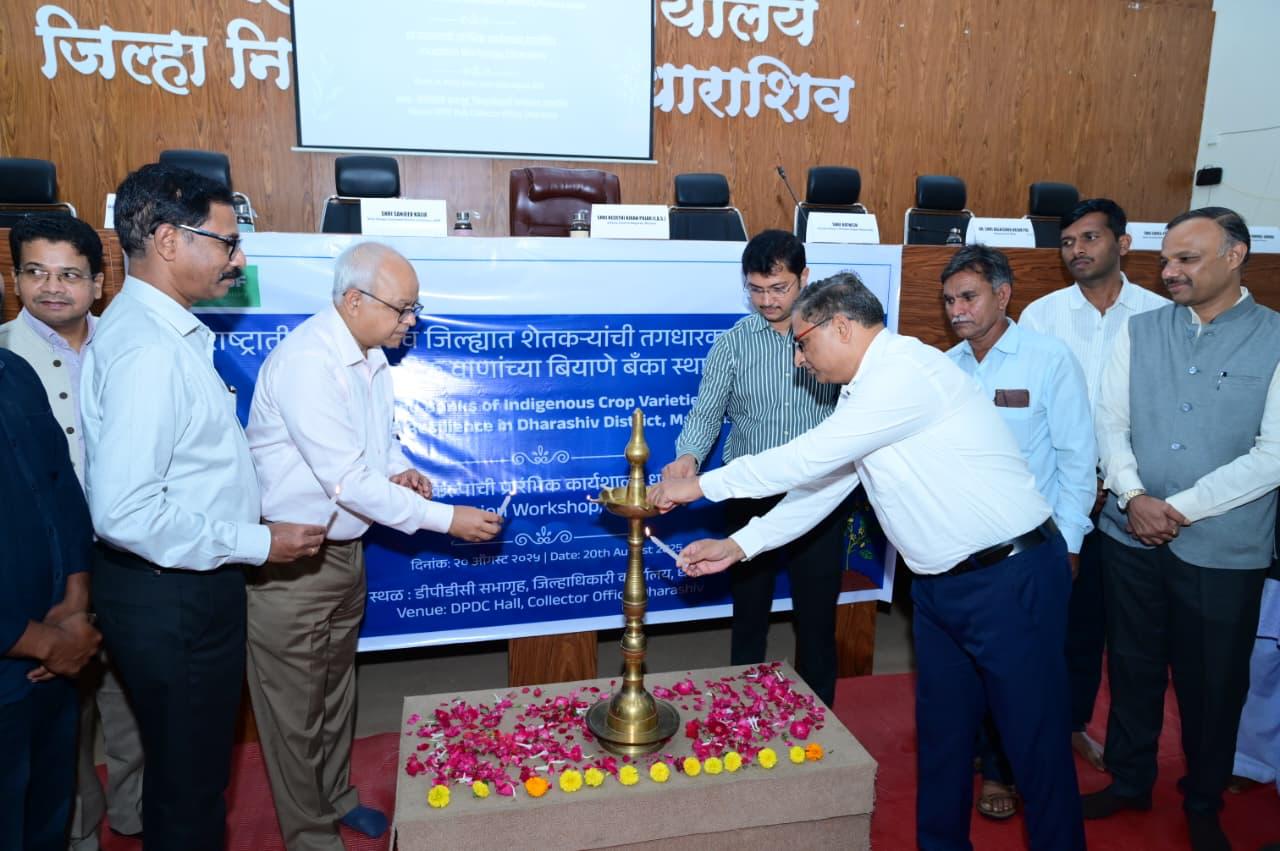
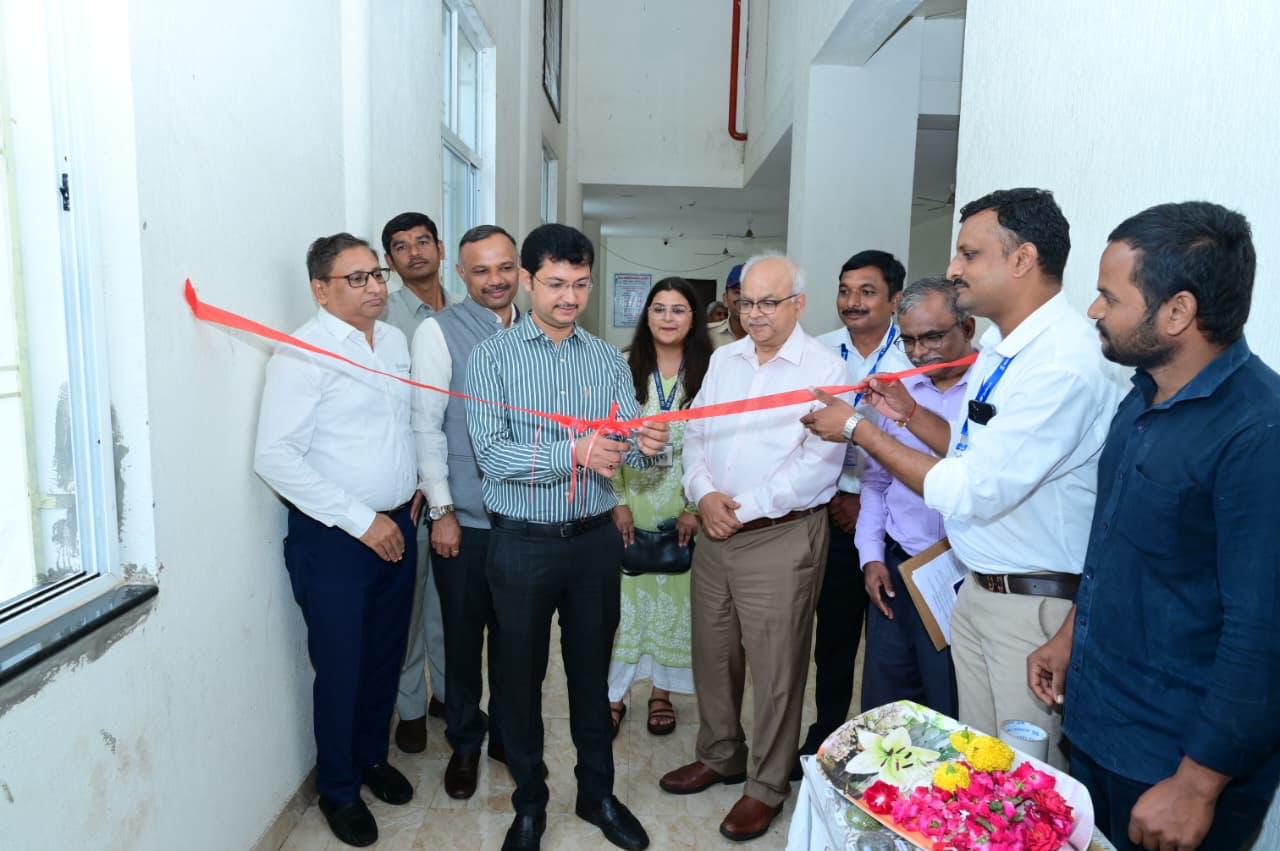
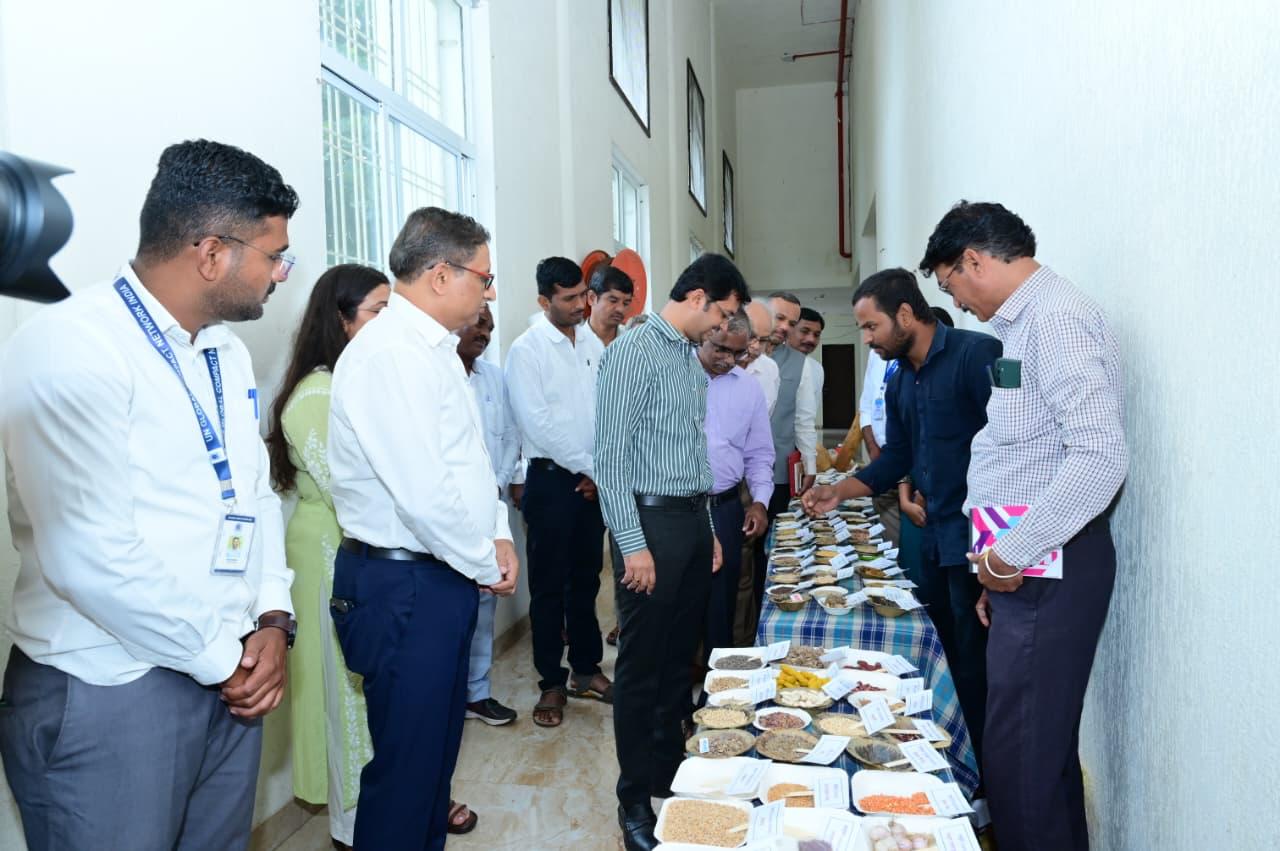
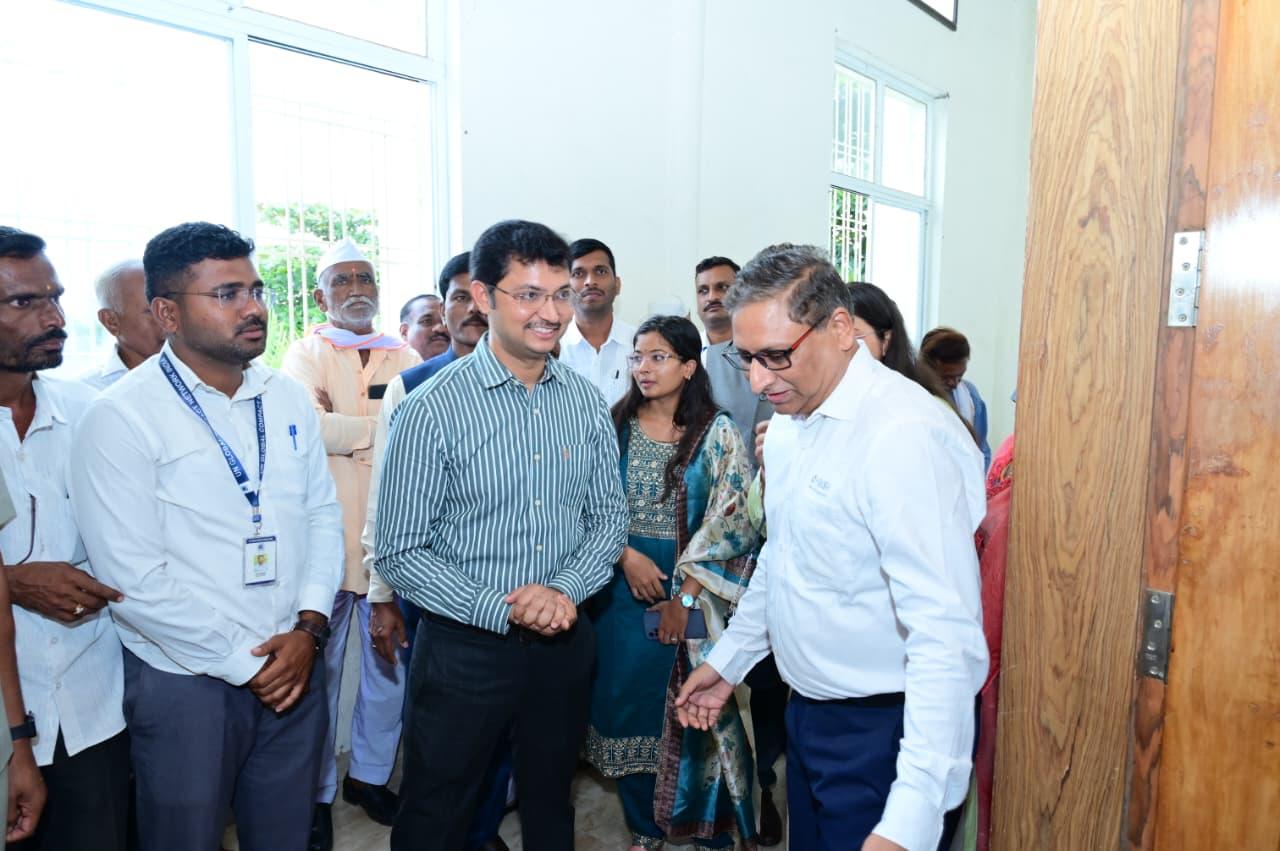
At UN Global Compact Network India (UN GCNI), we believe sustainability is not just a responsibility—it’s our opportunity to co-create resilient futures with communities.
We are proud to announce the launch of our CSR-led initiative, the Seed Banks of Indigenous Crop Varieties Project in Dharashiv, Maharashtra. This program—conceived, funded, and driven by BASF—is designed to revive and conserve traditional seeds, empower farmers, and build long-term resilience against climate risks.
The inception workshop, inaugurated by the Hon’ble District Collector of Dharashiv, Shri Keerthi Kiran Pujar (IAS), brought together administration, academia, farmer leaders, and civil society. Representing BASF, Mr. Sanjeev Kalia (Senior Manager, Government Relations & Advocacy) emphasized that for BASF, CSR goes beyond obligation—it is about science-driven, community-led solutions that safeguard biodiversity and empower farmers.
A special mention to Ms. Sunita Sule, Director, Country development & Government Relations [RR2] , BASF India whose vision and leadership first conceptualized this initiative, making Dharashiv the starting point for what we believe will become a model for climate-resilient agriculture in India.
The Welcome Address by Mr. Ratnesh, Executive Director, UN GCNI, set the stage by outlining the project’s vision, implementation roadmap, and alignment with the UN Sustainable Development Goals. He highlighted how UN GCNI is not only engaging businesses in sustainability dialogues but is also working actively on the ground through multi-stakeholder projects in water, climate, and biodiversity. With its presence across multiple states, UNGCNI continues to build partnerships that bridge policy, corporate action, and community impact.
Key highlights of BASF’s commitment through this project:
- Preserving Indigenous Seed Diversity – safeguarding traditional, climate-resilient crops.
- Empowering Farmers & Women Leaders – strengthening farmer custodianship and women’s role as biodiversity keepers.
- Driving Climate Action – ensuring resilience against droughts, erratic rainfall, and climate challenges.
- Promoting Sustainable Livelihoods – enabling local value chains and farmer-to-farmer knowledge exchange.
The workshop saw active participation from district administration, line departments (District Agriculture Department), Agricultural Technology Management Agency (ATMA), academic institutions (Tata Institute of Social Sciences Tuljapur) and civil society organizations (BAIF, Swayam Shikhsa Prayog), alongside the most important voices—100+ farmers from Dharashiv, including women leaders and progressive practitioners. Farmers shared their lived experiences, reinforcing the importance of indigenous seeds for resilience and nutrition.
The event also featured a demonstration by My Jayesh Jain from IIT Madras team on BASF’s Circular Economy project, showcasing how agri-residues can be transformed into compost, biofuel, and animal feed—creating new livelihood pathways while reducing carbon footprints. Together, these initiatives underline BASF’s commitment to holistic sustainability, linking biodiversity conservation with circular economy solutions for rural India.
With this initiative, BASF reaffirms its global sustainability vision and our dedication to building resilient rural communities in India. Dharashiv is just the beginning—together, we are sowing the seeds of a sustainable tomorrow.
